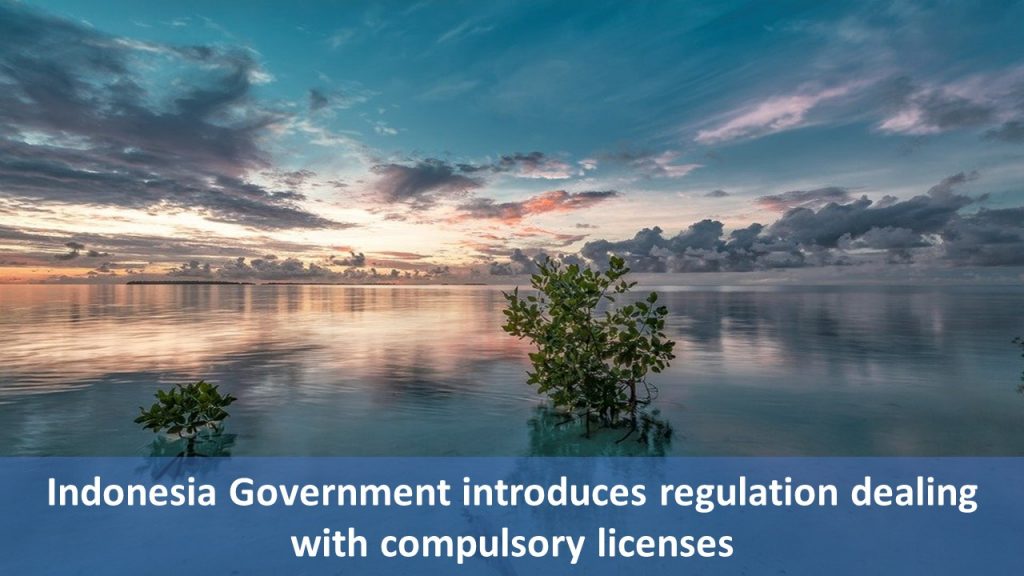In order to fight against the ravaging Covid-19 crisis, the Indonesian government has just issued a compulsory license framework that applies to national defense and security patents.
The Presidential Regulation No. 77 of 2020 has just been issued on July 7, 2020, by Indonesian President Mr. Joko Widodo regarding the procedures for the Implementation of Patents. This is the implementing regulation of Article 120 of the Indonesian Patent Law (No. 13, 2016). With this presidential regulation, the Indonesian government now can implement a government compulsory license (patent) themselves in certain situations.
Under Article 2 of this regulation, with some certain situations and conditions satisfied, the Indonesian government may implement patents themselves in Indonesia. The conditions that need to be met are:
- Patents relating to national defense and security;
- A very urgent need in the public interest.
Note: The definition of public interest is considered to be heavily linked to the potential future development of a vaccine for the Covid-19 crisis.
To be more precise, the public interest that requires the participating and interfering of the government include:
- Pharmaceutical and/or biotechnology products which are expensive and/or required to overcome diseases that can cause immediate death in large numbers, significant disabilities, and has the potential to create a global public health emergency;
- Chemical and/or biotechnology products related to agriculture that are needed for food safety;
- Animal medication that is needed to overcome pests and/or extremely high contagious animal diseases;
- Processes and/or products that are required to overcome natural disasters and/or environmental disasters.
The patents that the government can overcome and interfere
The government has the option to implement the patent itself or they might appoint a third party to show fairness for all involved parties if there are circumstances mentioned above happened. Nevertheless, the related third party must also fulfill the following requirements:
- The third-party has facilities and is capable of implementing the patent;
- The third-party does not transfer the implementation of the said patent to other parties;
- The third-party has a good method of production, circulation, and supervision following legislative regulatory requirements.
For patents implemented by the government or a third party appointed by the government to deal with the immediate threat to the public interest, the regulation clearly stipulates that the patent owner still owns their exclusive right to the patent. This means that they can keep utilizing their patent if they wanted as well as having the right to enforce their rights.
However, on the contrary, if a patent related to national defense and security is implemented by the government itself or a third party appointed by the government, the patent owner cannot keep utilizing the patent because this is a matter of national security.
To clarify the situations that are defined as a matter of national security, article 4 states that patents that can be implemented by the government relating to national defense and security include: firearms, ammunition, military explosives, interception, tapping, reconnaissance; encryption devices, and password analysis devices and/or other processes and/or equipment for national defense and security.
For both the public interest provision and the national defense and security provision, the regulation clearly stipulates a formal application and examination process. If approved, the application process will finish in the issuance and publication of a presidential regulation specific to that patent.
You can see a list of Indonesia IP firms here.

